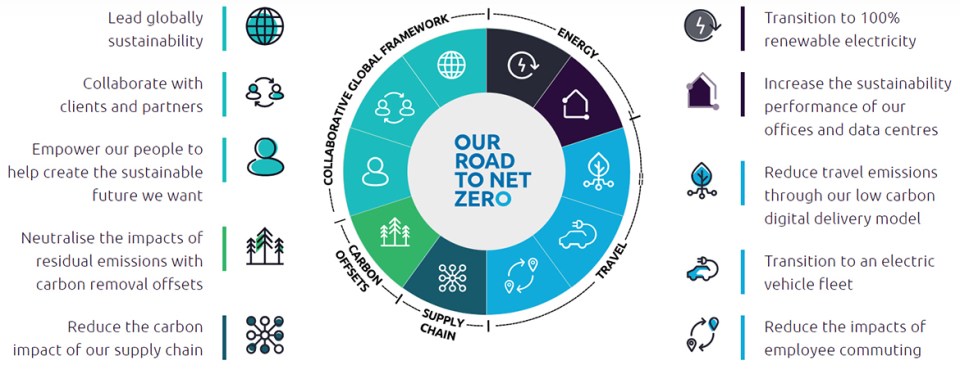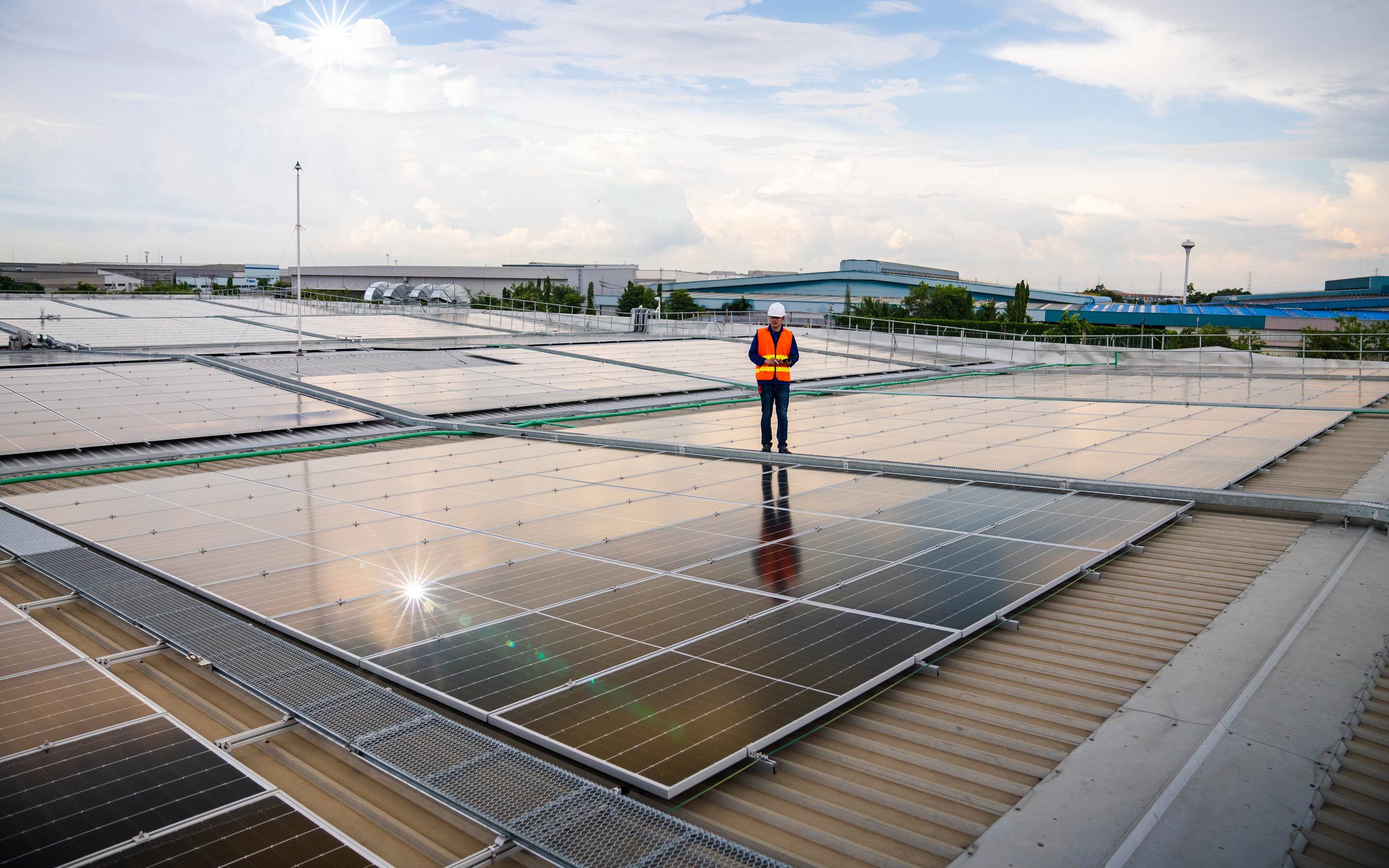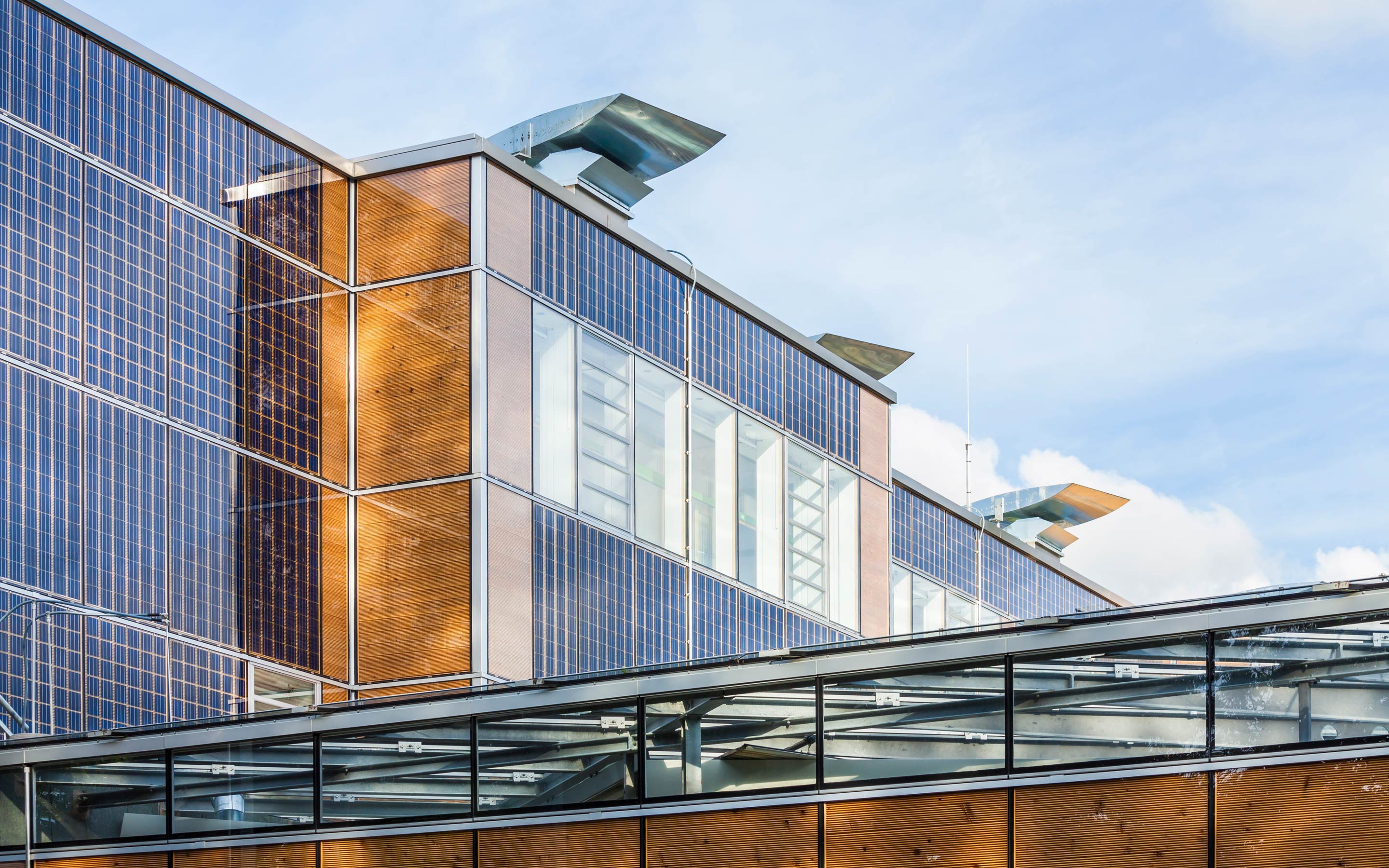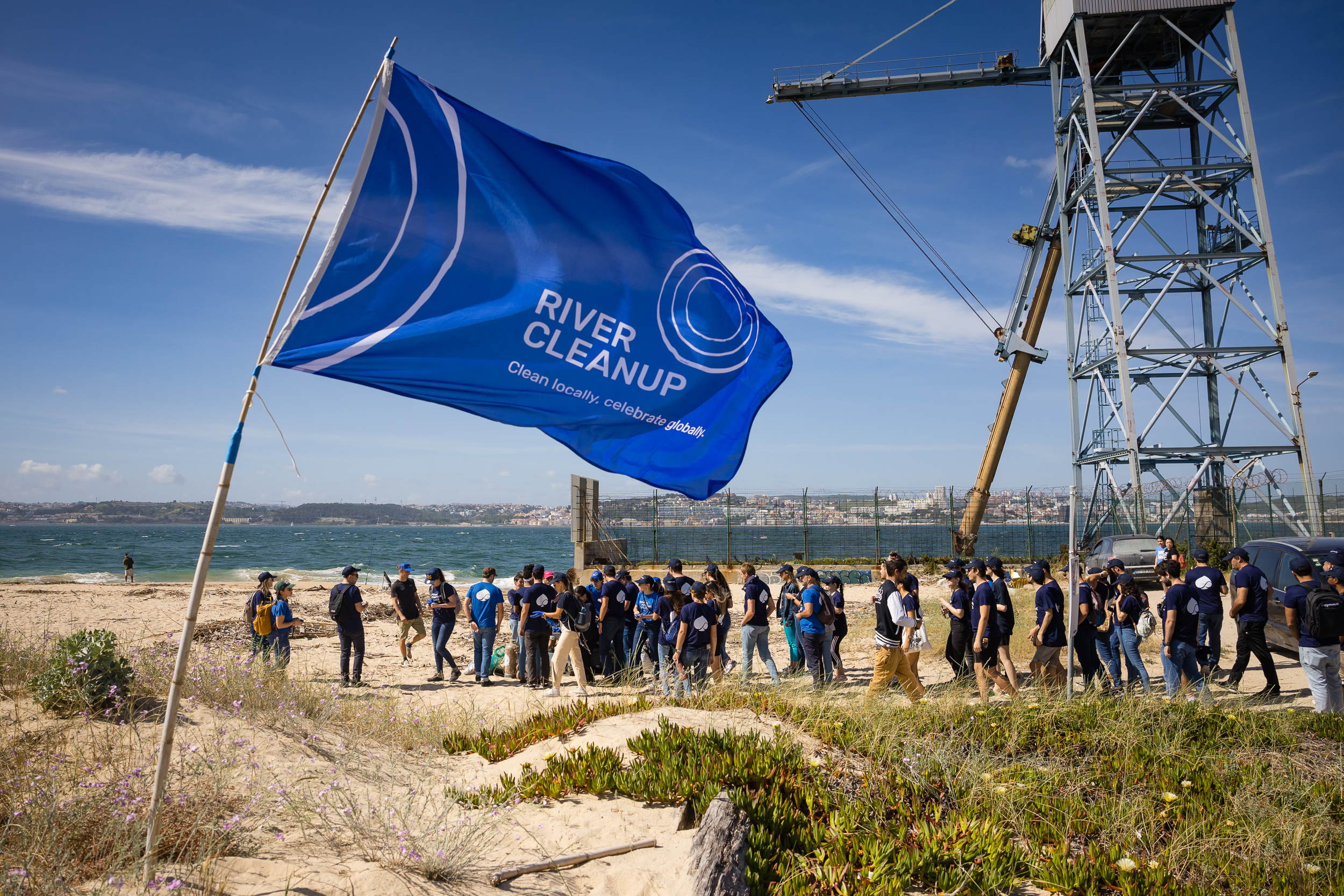“I HAVE PUT ACTING ON CLIMATE CHANGE AT THE HEART OF OUR GROUP PRIORITIES.”
Aiman Ezzat, Chief Executive Officer of Capgemini


Environmental sustainability
We’re taking action to address climate change, one of the biggest societal challenge that we’ve faced in generations.
As a responsible business, we’re determined to play a leadership role in ensuring technology creates a sustainable future. We drive internal change across every aspect of our operations, while helping our clients address their own environmental challenges. We also team up with our partners and suppliers, start-ups, policy-makers, governments and academics, to make sustainable progress together aligned to the goals of the Paris Agreement.
We have been committed to managing our resources effectively and cutting our carbon emissions for many years, and were one of the first companies in our sector to have our carbon reduction targets validated by the Science-Based Targets initiative (SBTi). We have a strengthened ambition to achieve a 90% reduction in all carbon emissions across scopes 1,2 and 3 and become a net zero business by 2040. Our new targets have been validated as being in line with the Science Based Target initiative’s (SBTi ) new Corporate Net-Zero Standard. This standard is the world’s first framework for corporate net zero target setting and is in line with the level of reduction needed to limit global warming to 1.5°C.
In December 2022, our leadership position in tackling climate change was again recognized by global environmental non-profit CDP, who positioned us on their prestigious ‘A list’.
Our objectives
As part of our Environmental, Social and Governance policy, we have set objectives to:
– Be carbon neutral for our own operations no later than 2025 and across our supply chain by 2030, and committed to becoming a net zero business by 2040*
– Transition to 100% renewable electricity by 2025, and electric vehicles by 2030
– Help our clients to save 10m tons of CO2 eq by 2030
*Our initial objective, as published in our ESG Policy in 2021, was to become net zero well ahead of 2050. Since then, we have refined our net zero targets in line with the Science Based Target initiative’s (SBTi ) new Corporate Net-Zero Standard. Capgemini’s refined net zero targets have been assessed by the SBTi and were approved in July 2022. Our new net zero headline target is to achieve a 90% reduction in carbon emissions across Scopes 1, 2 and 3 by 2040, compared to a baseline of 2019. For more information please refer to Capgemini Environmental Sustainability Report 2021/2022
Progressing on our journey to net zero
The net zero transformation at the scale and pace we have targeted is ambitious. It materially impacts every aspect of the way we operate, from procurement and IT operations to people policies and business models.
We are accelerating our approach to carbon reduction across our key impact areas:


Reducing our travel impact
As a global company, travel, including business travel and commuting, is one of our biggest impacts. We are increasing our virtual collaboration capabilities and digital workplace initiatives while creating a new framework for connecting people, wherever they are. For the travel that remains necessary, we continue to enable people to make lower carbon choices.
Moving to an electric vehicle fleet
We have accelerated the roll-out of a hybrid and electric car fleet and in line with our EV100 commitment are significantly increasing our investment in electric charging points. With company car emissions making up 10% of our business travel emissions before COVID-19, this transition is expected to have a significant impact.


Transitioning to renewable electricity
In line with joining the RE100 commitment to renewable electricity, we are rolling out a renewable energy strategy to meet our 2025 target of 100% renewable electricity. We’re also Increasing the sustainability performance of our offices and data centers, intensifying our focus on energy efficiency.
Driving sustainability across our supply chain
Sustainable businesses need sustainable supply chains. We’re proud to have earned a place again as a leading company on CDP’s 2022 Supplier Engagement Leaderboard for taking steps to raise the level of climate action across our entire value chain.

Our impact
Expert perspectives
Decarbonization: How data is critical to realizing your net zero ambition

ESG for banks – how to elevate the game to achieve key goals

Inside stories
From trash to treasure
At Capgemini Portugal we believe that the future of our planet is everyone’s responsibility. We are committed to taking action to protect the environment and ensure a better tomorrow.
Our approach to ESG
Our conviction is that there has never been a better time to leverage technology and human capabilities to tackle environment, social and governance (ESG) challenges.
















































